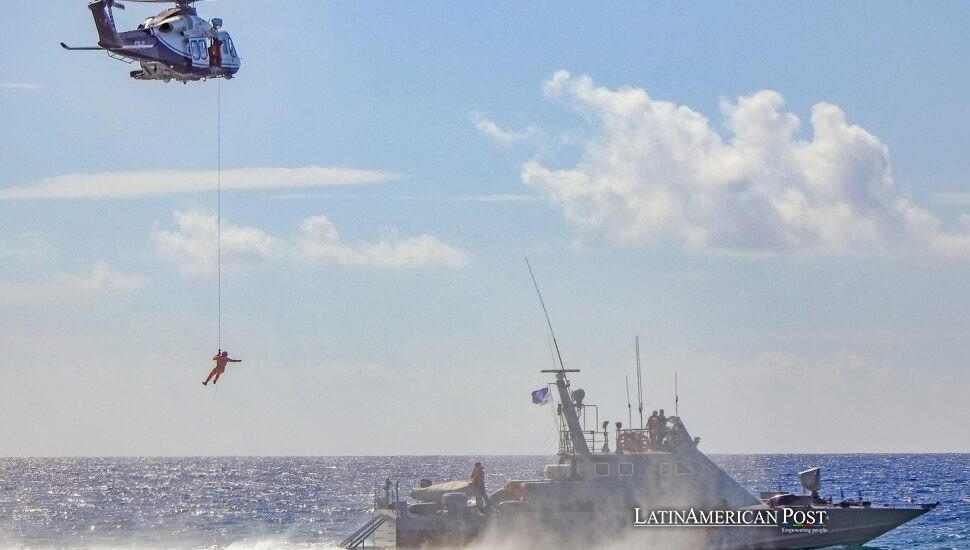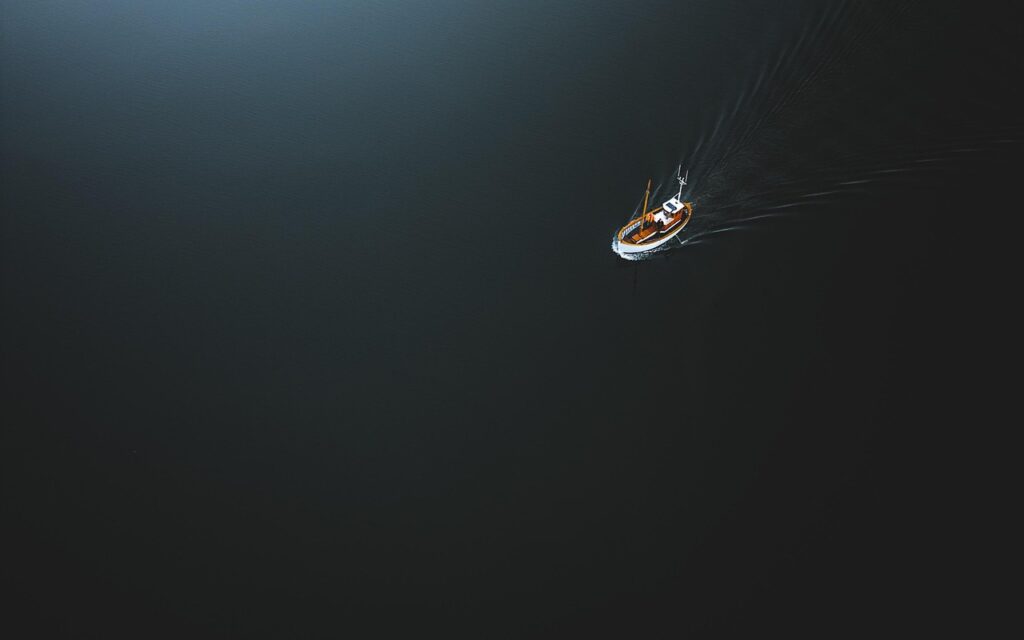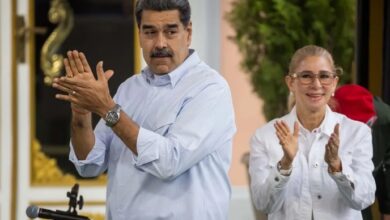Venezuela, Drug Boats, and the Politics of Ambiguity: Trump’s 60 Minutes Gamble

The Interview That Said Everything and Nothing
He smiled when he said it—the kind of smile meant to reassure one audience and unsettle another. “I doubt it. I don’t think so. But they’ve been treating us very badly,” Donald Trump told 60 Minutes, asked whether the United States was headed for war with Venezuela. The denial came lightly, almost conversationally, even as the evidence of preparation filled the Caribbean sky.
For weeks, the region has looked more like a chessboard than a shipping lane. B-52 bombers have flown “attack demonstrations” off Venezuela’s coast. Drones, spy planes, Marines, and warships are crowding waters that for years had been quiet. The CIA, Trump said casually, is “deployed.” None of it sounds like a country standing down.
Yet the interview never tipped into outright admission. The president spoke in the register of a man who wants to keep everyone guessing—assuring viewers there’s no war while hinting that “many things” are in motion. “I’m not gonna tell you what I’m gonna do with Venezuela,” he said. That’s the point of a performance like this one: to project dominance through uncertainty.
The cost of that ambiguity, though, is being paid somewhere else—by families in Caracas and Maracaibo watching American ships glide past their television screens, by markets jittery at the word “demonstration,” and by diplomats trying to explain what exactly the United States wants.
A War He “Doubts,” A Buildup He Commands
Officially, the armada massing in the Caribbean is about counternarcotics. “Every single boat that you see that’s shot down kills 25,000 on drugs,” Trump told 60 Minutes, collapsing the opioid crisis into a battlefield equation. “It destroys families all over our country.” It’s a shocking arithmetic—one vessel equated to a small city of overdose victims.
The facts are starker and stranger. Since early September, U.S. strikes have destroyed dozens of suspected smuggling boats, killing at least 64 people. The Pentagon calls them “drug traffickers.” Venezuela calls them “fishermen.” Colombia’s president says the missions look more like “dominance than defense.”
If the goal is pure interdiction, the show of force seems excessive; if it’s regime change, the language is oddly restrained. Trump’s aides insist the operations are surgical. Still, every missile risks turning strategic messaging into bloodshed.
The region hears a louder story. Maduro calls it proof of “a fabricated war.” Brazil has quietly doubled its own naval patrols. Caribbean leaders, some of them U.S. allies, have asked for clarification they haven’t received. A buildup can deter—but it can also provoke. And deterrence depends on believing the other side knows where the line is.
Drug Boats, Body Counts, and the Politics of Fear
The president didn’t just talk about Venezuela. He pulled everything—drugs, migration, gangs, nuclear weapons—into the same narrative. “They come in from the Congo, they come in from all over the world,” he said, before pivoting to Venezuela’s Tren de Aragua, which he called “the most vicious gang anywhere in the world.”
The rhetorical fusion—narcotics, migrants, foreign villains—makes for potent politics. It paints the seas as an extension of the southern border and justifies extraordinary measures on both. The logic feeds itself: fear of gangs and traffickers legitimizes harder interdiction; heavier interdiction fuels displacement, which then reinforces the fear.
In the interview, Trump claimed the United States would resume nuclear testing “like other countries do.” Hours later, his own energy secretary told another network, flatly, no such tests were planned. The choreography is familiar: the president floats the maximalist option, subordinates temper it, adversaries wonder which version to believe. That uncertainty can be deterrence—or chaos—depending on who blinks first.
The risk isn’t only foreign. At home, folding the drug war into the immigration war blurs the policy tools needed for either. Overdoses are not stopped by aircraft carriers. Cartels crumble when finances are frozen, not when boats explode in open water. But fear makes better television than nuance, and television is where this presidency still plays its hardest moves.

Domestic Theater, Foreign Consequences
The 60 Minutes broadcast was less a briefing than a stage. Between warnings about Venezuela, Trump veered into the government shutdown, calling Democrats “crazed lunatics,” and bragged about a lawsuit settlement with the network’s parent company that, he said, would help fund his presidential library. It was all of a piece: a man asserting victory across every battlefield—legal, political, military, media.
But this kind of domestic theater carries foreign consequences. A month-long shutdown drains readiness, grounding civilian agencies even as the military posture grows more muscular. Floating the idea of nuclear tests alarms allies whose help is essential in the Caribbean. Stretching “counternarcotics” into a de facto undeclared conflict tests both the law and Latin America’s patience.
The unanswered questions multiply: What would trigger escalation beyond sea strikes? Under what legal authority are lethal actions being ordered? If a drone misidentifies a vessel and kills civilians, who answers for it? And, crucially, what happens if Venezuela—or any nearby country—decides to shoot back?
Strategic ambiguity can be an asset; strategic drift is a liability. The president may prefer to keep “all options on the table,” but the men and women piloting ships and planes already have orders they can’t interpret on camera.
The best-case scenario is that the muscle flex works—Maduro stays cautious, traffickers scatter, and no one else dies. The worst case is an accident at sea, a retaliatory shot, a headline that turns brinkmanship into a spiral. The Caribbean, for now, is crowded and calm; the calm feels temporary.
In the end, the 60 Minutes appearance achieved exactly what it set out to do: project power without committing to a plan. It reminded Americans of the commander in chief’s reach and left the rest of the hemisphere guessing where that reach might land next. On television, ambiguity plays as strength. On the water, it can look an awful lot like danger.
Also Read: Venezuela on Edge: Warships, Empty Wallets, and a Nation Running on Nerves




